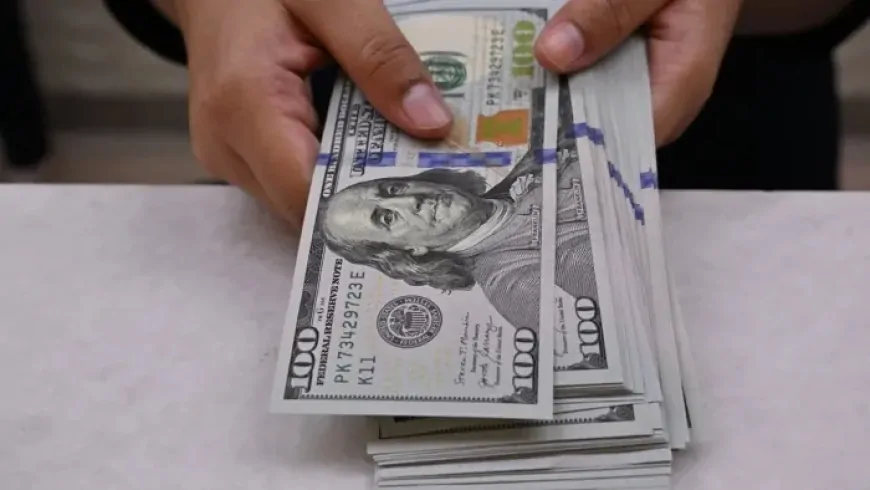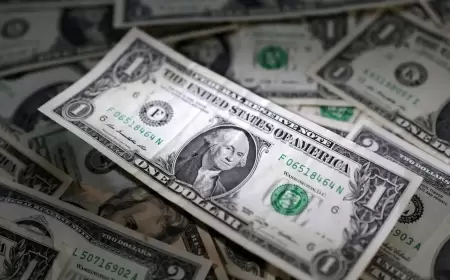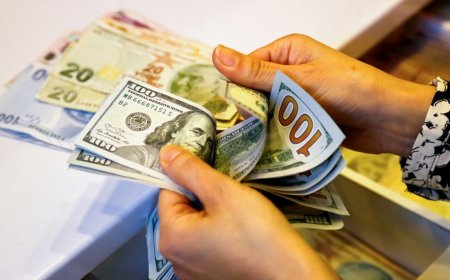Rising US Dollar Cuts Global Company Profits, Increases Financial Pressure
The rising US dollar is reducing profits for major global companies like Amazon, Apple, and McDonald's by lowering the value of international revenue.

The sharp rise in the US dollar over the past six months is hurting the profits of major global companies. Businesses in technology, consumer goods, and other industries warn that the stronger dollar is reducing their earnings and could continue to cause financial problems.
When the dollar becomes stronger, the value of money earned overseas drops when converted to US currency. This reduces revenue and profits for companies with large international operations. According to Goldman Sachs analyst David Kostin, more S&P 500 companies are raising concerns about currency issues during their earnings reports.
How a Strong US Dollar Hurts International Businesses
For companies that operate globally, a stronger dollar directly affects their profits. When they convert their foreign revenue into dollars, the higher exchange rate makes that revenue worth less. This is especially a problem for technology companies, which depend heavily on international markets.
Apple recently reported that 58% of its revenue came from outside the United States during the last quarter. Other major tech companies like Alphabet (Google's parent company), Microsoft, Tesla, and Meta also said that about half or more of their 2024 revenue came from international markets. All these companies warned that the rising dollar is cutting into their profits.
Amazon, which earns about 23% of its revenue from outside the US, said it lost $900 million last quarter due to currency issues—$700 million more than it had expected. The company now predicts its revenue will grow only between 5% and 9% in the first quarter of 2025. This could be the slowest growth period in Amazon’s history.
"We expect a significant negative impact of approximately $2.1 billion from foreign exchange rates," Amazon said in its latest earnings report.
Consumer Brands and Other Companies Face Similar Challenges
It’s not just tech companies feeling the pressure. Fast-food giant McDonald's expects currency fluctuations to lower its 2025 earnings per share (EPS). Coca-Cola predicts a 6% to 7% decrease in EPS growth due to the stronger dollar. Johnson & Johnson says the rising dollar could cut $1.7 billion from its annual revenue.
These companies are especially vulnerable because much of their revenue comes from international sales. As the dollar gains strength, money earned overseas becomes less valuable when converted back into US dollars, reducing overall profits.
Why Is the US Dollar Getting Stronger?
The dollar’s rise is being driven by political changes and US economic policies. Since the US presidential election and the Republican party's control of Congress, the US Dollar Index—which measures the dollar’s value compared to major world currencies—has jumped over 7% from its September low. Since the election, the index has climbed about 4%, approaching record levels from January.
Recent trade policies are a key reason behind the dollar’s growth. The US government has raised tariffs on imported goods, cut corporate taxes, and introduced stricter immigration rules. Economists warn these policies could lead to higher inflation, forcing the Federal Reserve to maintain higher interest rates. High interest rates attract more foreign investment, which further strengthens the dollar.
In February, the US government announced a 25% tariff on steel and aluminum imports, starting on March 12. More tariffs on countries like Mexico, Canada, and China are expected soon.
Goldman Sachs predicts that the dollar could rise another 3% over the next year, creating more challenges for US companies with significant international business.
"A combination of strong US economic growth, rising asset returns, and the threat of new tariffs has boosted the dollar’s strength," Goldman Sachs reported. If the dollar keeps rising, companies that rely heavily on overseas sales will likely face even more financial pressure in the coming months.
Also Read: Dollar Weakens as Trump Signals Gradual Tariff Rollout































































